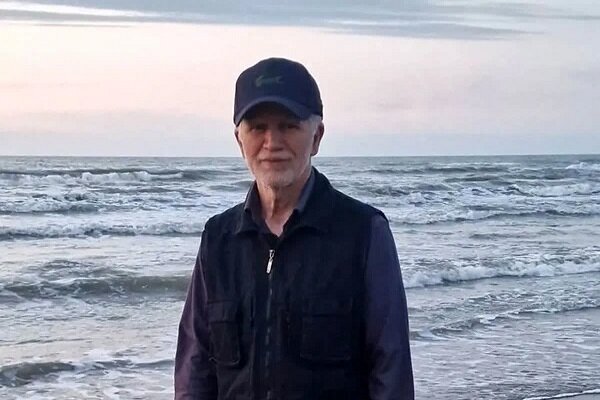The Martyred Physicist Who Began His Classes with Hafez’s Poetry

TEHRAN- Dr. Mansour Askari, a devoted scientist whose every lecture began with the lyrical wisdom of Hafez and whose prayer came before any worldly duty, lived a life defined by knowledge, faith, and sacrifice. He was a paragon of sincerity and intellect—a martyr who gave his life for the Islamic Republic of Iran.
Born on June 3, 1958 in Tehran, Askari completed his education in mathematics and physics at the prestigious Alborz High School. Gifted with an extraordinary IQ, he stood out from childhood. He pursued higher education in nuclear physics at Shiraz University, graduating with top honors alongside fellow martyr Dr. Masoud Alimohammadi.
Following the victory of the Islamic Revolution and during the Cultural Revolution that closed Iran’s universities, Askari took on national service as head of a seven-member committee in Kamirooz, Shiraz. He later joined the frontlines during the eight-year Iran-Iraq War, earning distinction as one of its pioneering defenders.
After the war, despite offers from major institutions like Shiraz and Tehran University, Askari chose to join the Islamic Revolutionary Guard Corps (IRGC) in 1984, driven by unwavering loyalty. He earned his PhD from Amirkabir University in nuclear engineering, focusing on radiation shielding for gamma rays in medical applications—a project he advanced to industrial production.
As a founding faculty member of Imam Hossein University, alongside martyrs Fereydoon Abbasi and Mohsen Fakhrizadeh, Askari established the physics department and taught advanced courses including quantum mechanics, analytical mechanics, and electromagnetic theory. He also led the university’s Center for Philosophy of Natural Sciences.
Together with Abbasi and Fakhrizadeh, Askari founded the Institute for Applied Physics, the precursor to Iran’s Defense Innovation and Research Organization (Sepand). Among many projects, he directed work on radiation shields, neutron-gamma mixed fields, and elastomers.
Askari played a crucial role in Iran’s nuclear development, co-founding the Iranian Nuclear Association with martyrs Majid Shahriari and Abbasi, promoting nuclear science nationwide. He collaborated with Alimohammadi in creating thermoluminescence detectors (TLDs), a major achievement in nuclear radiation detection.
He also partnered with Shahriari on designing nuclear level meters used to measure fluid levels in oil, gas, and petrochemical industries—technology he helped fully indigenize within Iran.
Fluent in English, Russian, and French, and studying Chinese and Hebrew, Askari mentored countless graduate and doctoral students, publishing high-impact articles in top-tier journals. His work in nuclear diffraction and shielding was especially prolific.
Despite his academic stature, Askari was a humble mentor. His eloquence and character drew many to his lectures, even unofficially. A man of discipline and devotion, he fasted regularly on Mondays, Thursdays, and during sacred months. Known for saying, “Do not tell prayer you are busy with work; tell work it is time to pray,” he would stop everything to pray when the call to prayer was heard.
Passionate about poetry, he had memorized many verses of Hafez, Saadi, and contemporary poets, often sharing them with his students. Sports, too, played a role in his balanced life—he was a skilled football forward, known for his strategic mind on the field.
Askari’s precision, creativity, and resilience made him the go-to figure for solving deadlocks in Sepand. As Ministry of Defense representative in Iran’s Supreme National Security Council, he helped navigate complex diplomatic challenges in nuclear policy through unmatched strategic insight.
His personal life was marked by love and loss. He had two daughters and two grandchildren. On June 12, 2025, in a heinous attack by the Zionist regime, his wife—Masoumeh Yousefi, a retired biology teacher—his daughter, Dr. Marzieh Askari, a neonatal specialist, and his granddaughter, Zahra Barzegar, attained martyrdom in their home.
(Source: Mehr News Agency)
